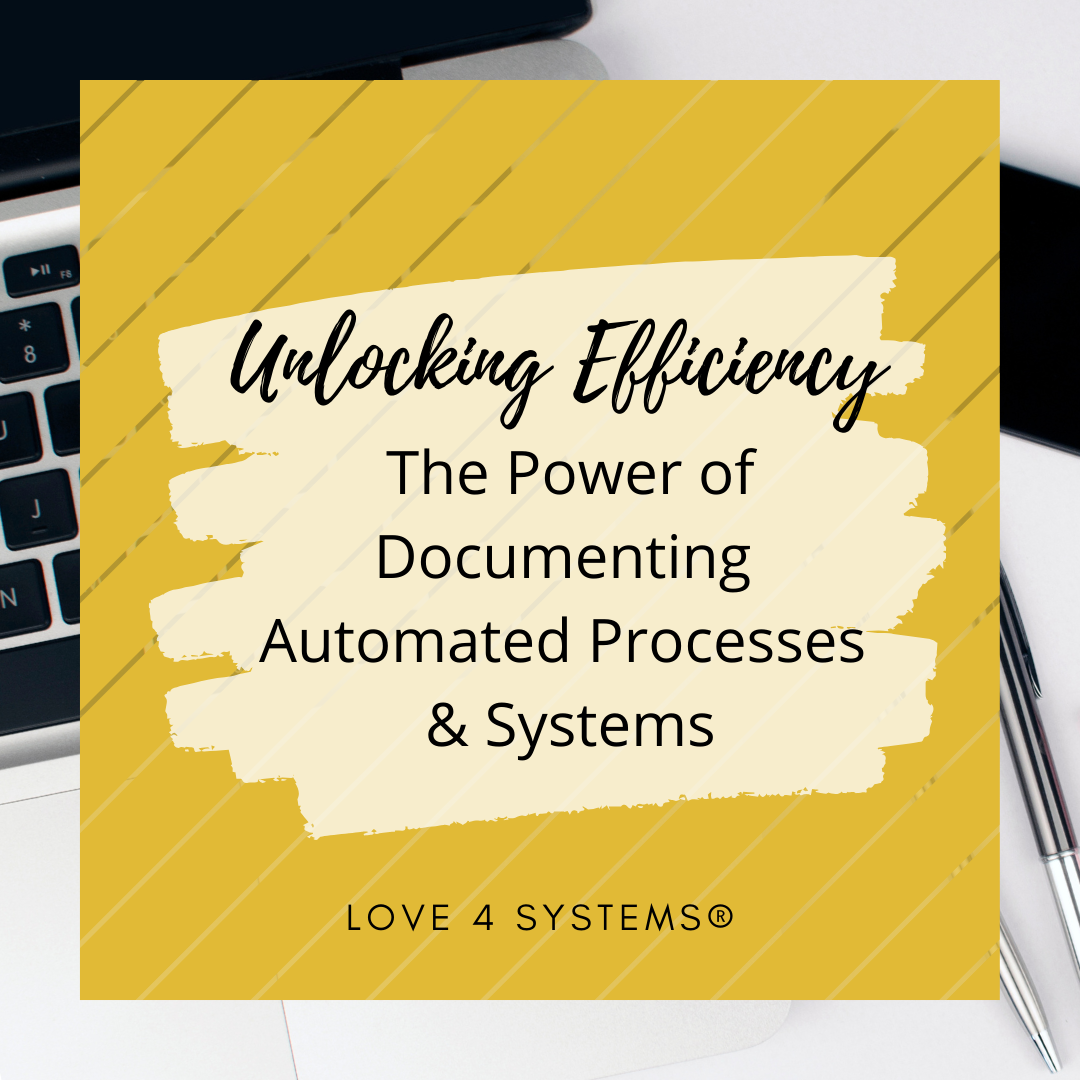In the ever-evolving landscape of technology, automation has become a cornerstone for businesses aiming to enhance efficiency and streamline operations. While implementing automated processes is crucial, the significance of documenting these systems often takes a back seat. In this blog post, we'll delve into why documenting automated processes and systems is paramount and why you should start now.
The Invisible Backbone: Documentation
Preserving Institutional Knowledge: Automation often involves intricate workflows and specialized configurations. Documenting these processes ensures that valuable institutional knowledge isn't locked within the minds of a few individuals. In case of turnover or expansion, having comprehensive documentation becomes an invaluable resource for training new team members.
Ensuring Consistency: Documentation acts as a guide, ensuring that automated processes are executed consistently. Consistency is key to reliability and quality in any system. Documented procedures eliminate the guesswork and reduce the likelihood of errors that can occur when tasks are performed ad-hoc.
Troubleshooting and Debugging: No system is perfect, and issues can arise. Well-documented processes serve as a troubleshooting manual, helping teams quickly identify and resolve problems. This not only minimizes downtime but also empowers your team to handle unforeseen challenges efficiently.
Future-Proofing Your Automation
Scalability: As your business grows, so will the complexity of your processes. Documentation is the roadmap for scaling your automation efforts. It facilitates the replication of successful processes across different departments or projects, enabling seamless expansion without reinventing the wheel.
Adaptability to Change: Technology evolves, and so do business requirements. Documenting automated systems ensures that you can adapt to changes without disrupting operations. It provides a baseline for modification, upgrades, or integration with new tools and technologies.
Building a Culture of Accountability
Ownership and Accountability: Documented processes assign clear ownership and accountability. Team members understand their roles within the automated workflow, fostering a sense of responsibility. This clarity is essential for maintaining accountability and ensuring that everyone is aligned with organizational goals.
Continuous Improvement: Documentation facilitates a culture of continuous improvement. Regularly reviewing and updating documentation allows your team to identify areas for enhancement, optimization, and innovation in your automated processes.
Call to Action: Elevate Your Automation Journey with VIP Experience
Now that you understand the pivotal role of documentation in maximizing the benefits of automated processes, it's time to take action. Sign up for our VIP Experience to gain exclusive access to expert guides, templates, and personalized consultations. Elevate your automation journey, unlock unparalleled efficiency, and stay ahead in the dynamic world of technology.
Don't let valuable knowledge slip through the cracks – start documenting your automated processes today for a more resilient, scalable, and efficient future. Your VIP Experience awaits – sign up now!

